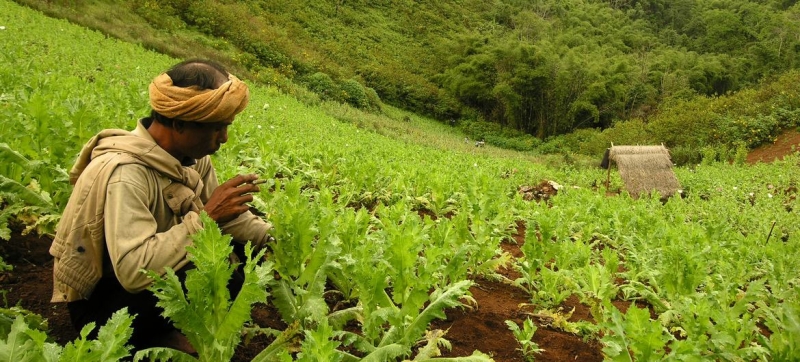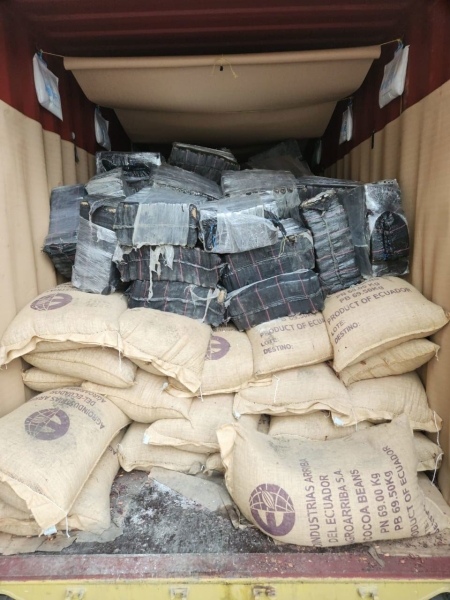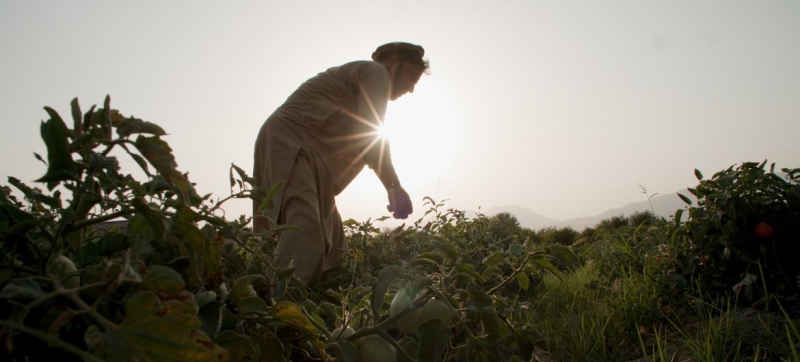
Hands of a drug-using resident of Odessa, Ukraine. (archive) Global drug problem continues to worsen amid ‘psychedelic renaissance’ and record cocaine production Health
The emergence of new synthetic opioids and record market sizes for other substances have exacerbated the drug problem worldwide, leading to an increase in the incidence of substance use disorders and environmental degradation. These are the findings of the 2024 World Drug Report, released on Wednesday by the United Nations Office on Drugs and Crime (UNODC).
“Drug production, trafficking and use continue to exacerbate instability and inequality, while causing serious harm to people’s health, safety and well-being,” said UNODC Executive Director Ghada Wali . “We must provide evidence-based treatment and support for all people affected by drug use, while tackling the illicit drug market and investing much more in prevention.”
The number of people using drugs has risen to 292 million in 2022, representing a 20 percent increase in 10 years. Cannabis remains the most widely used drug worldwide (228 million users), followed by opioids (60 million users), amphetamines (30 million users), cocaine (23 million users) and ecstasy (20 million users).
Nitazenes, a group of synthetic opioids that may have stronger effects than fentanyl, have recently appeared in several high-income countries, leading to an increase in deaths from overdoses.
Organized crime groups
Drug traffickers in Southeast Asia’s Golden Triangle countries are diversifying into other areas of the illicit economy, such as wildlife trafficking, fraud, and illegal resource extraction.

Opium poppy cultivation in Myanmar.
Displaced people, poor people and migrants are sometimes forced to resort to opium cultivation or illegal resource extraction to survive, falling into the debt trap of criminal gangs or using drugs themselves.  ;
Such illegal activities also lead to environmental degradation through deforestation, toxic waste dumping, and chemical pollution.
Surge in Cocaine Use

Intercepted cocaine.
In 2022, a new record was set in cocaine production – 2,757 tons, which is 20 percent more than in 2021. In addition, between 2021 and 2022, global coca bush cultivation increased by 12 percent to 355 thousand hectares.
The surge in demand and supply for cocaine has coincided with increased violence in states along the supply chain, especially Ecuador and the Caribbean, and increased levels of adverse health effects in destination countries, including Western and Central Europe.
The consequences of cannabis legalization
As of January 2024, Canada, Uruguay, and 27 jurisdictions in the United States have legalized the production and sale of cannabis for non-medical use, and new legislative approaches have emerged elsewhere in the world.
In jurisdictions in the Americas, this process appears to have led to an increase in the harmful use of the drug and to the diversification of cannabis products, many of which are high in the psychoactive component THC. The number of hospitalizations due to cannabis use and the proportion of people with mental disorders associated with regular use of the substance have increased in Canada and the United States, especially among young people.
“Psychedelic Renaissance”
Interest in the therapeutic use of psychedelic substances in the treatment of some mental disorders continues to grow, but clinical research have not yet led to the development of any generally accepted scientifically based recommendations for the medical use of psychedelics.
However, as part of the “psychedelic renaissance”, social movements are promoting growing commercial interest and creating an enabling environment for increasing access to “quasi-therapeutic” and non-medical uses of psychedelics. Such movements potentially compromise public health goals and increase the health risks associated with uncontrolled use of psychedelic substances.
Effects of opium prohibition Afghanistan
Following a sharp decline in opium production in Afghanistan in 2023 (down 95 percent from 2022) and an increase in production in Myanmar by 36 percent, global opium supply has fallen by 74 percent in 2023.

The former opium producer now grows tomatoes.
A sharp decline in the opiate market in Afghanistan has made local farmers poorer and some drug traffickers richer. Transit and destination countries for Afghan opiates may soon experience long-term effects, including on the purity of heroin, conversion of heroin users to other opioids, and increased demand for addiction treatment services.
Right to Health
The report emphasizes that the right to health is a recognized human right, regardless of drug use status or whether whether the person is in prison.
Read also:
UN chief human rights defender: drug policies must promote respect for human rights
By An estimated 64 million people worldwide suffer from drug use disorders, but on average only one in 11 receives treatment. Yet women have even less access to such services than men: only one in 18 women who abuse drugs receives treatment, compared with one in seven men.

. 19-year-old resident of Odessa, drug user, infected with HIV. He lives in a homeless shelter and has no access to HIV treatment. (archive)
An estimated 7 million people had formal police contact (including arrests and warnings) for drug-related reasons in 2022, with about two thirds of that number related to the use of drugs or their possession for the purpose of use. Additionally, in 2022, 2.7 million people were prosecuted for drug-related offenses worldwide and more than 1.6 million were convicted. However, there are significant differences in criminal justice approaches to drugs across different regions.
